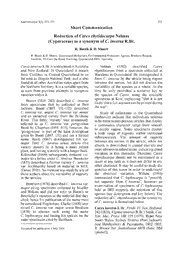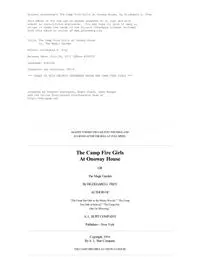
The Camp Fire Girls at Onoway House PDF
Preview The Camp Fire Girls at Onoway House
Project Gutenberg's The Camp Fire Girls at Onoway House, by Hildegard G. Frey This eBook is for the use of anyone anywhere at no cost and with almost no restrictions whatsoever. You may copy it, give it away or re-use it under the terms of the Project Gutenberg License included with this eBook or online at www.gutenberg.org Title: The Camp Fire Girls at Onoway House or, The Magic Garden Author: Hildegard G. Frey Release Date: July 24, 2011 [EBook #36833] Language: English Character set encoding: UTF-8 *** START OF THIS PROJECT GUTENBERG EBOOK THE CAMP FIRE GIRLS *** Produced by Stephen Hutcheson, Roger Frank, Dave Morgan and the Online Distributed Proofreading Team at http://www.pgdp.net GLADYS TURNED THE CAR INTO THE FIELD AND STARTED AFTER THE BULL AT FULL SPEED. The Camp Fire Girls At Onoway House OR The Magic Garden By HILDEGARD G. FREY AUTHOR OF “The Camp Fire Girls in the Maine Woods,” “The Camp Fire Girls at School,” “The Camp Fire Girls Go Motoring.” A. L. BURT COMPANY Publishers—New York Copyright, 1916 By A. L. Burt Company THE CAMP FIRE GIRLS AT ONOWAY HOUSE THE CAMP FIRE GIRLS AT ONOWAY HOUSE CHAPTER I.—ONOWAY HOUSE. “What a lovely quiet summer we’re going to have, we two,” exclaimed Migwan to Hinpoha, as they stood looking out of the window of their room into the garden, filled with rows of young growing things and bordered by a shallow stony river. Migwan, we remember, had come to spend the summer on the little farm owned by the Bartletts and earn enough money to go to college by selling vegetables. The house in the city had been rented for three months, and her mother, Mrs. Gardiner, and her brother Tom and sister Betty had come to the country with her. Hinpoha was temporarily without a home, her aunt being away on her wedding trip with the Doctor, and she was to stay all summer with Migwan. “Yes, it will be lovely,” agreed Hinpoha. “I’ve never lived in such a quiet place before. And I’ve never had you to myself for so long.” Migwan replied with a hug, in schoolgirl rapture. She felt a little closer to Hinpoha than she did to the other Winnebagos. As they stood there looking out of the window together they heard the honk of an automobile horn and the sound of a car driving into the yard, and ran out to see who the guests were. “Gladys Evans!” exclaimed Migwan, spying the new comers. “And Nyoda! Welcome to our city!” “Please mum,” said Gladys, making a long face, “could ye take in a poor lone orphan what’s got no home to her back?” “What’s up?” asked Migwan, laughing at Gladys’s tone. “Mother and father started for Seattle to-day,” replied Gladys, “and from there they are going to Alaska, where they will spend the summer. I hinted that I was a good traveling companion, but they decided that three was a crowd on this trip, and as I had done so well for myself last summer they informed me that it was their intention to put me out to seek my own fortune once more. So, hearing that there were pleasant country places along this road, one in particular, I am looking for a place to board for the summer.” “Well, of all things!” exclaimed Migwan. “To think that we are to have you with us this vacation after all, after thinking that you were going to disport yourself in California! The guest chamber stands ready; ‘will you walk into my parlor?’ said the Spider to the Fly.” At this point “Nyoda,” Guardian of the Winnebago Camp Fire group, formally known as Miss Kent, also advanced with a long face, holding her handkerchief to her eyes. “Could you take in a poor shipwrecked sailor,” she sobbed, “one whose ship went right down under her feet and left her nothing to stand on at all?” “It might even be arranged,” replied Migwan. “What is your tale of woe, my ancient mariner?” “My cherished landlady’s gone to the Exposition,” said Nyoda, with a fresh burst of grief, “and I can’t live with her and be her boarder this summer! It’s a cruel world! And me so young and tender!” “Two flies in the guest chamber,” said Migwan, hospitably. “Thomas, my good man, carry the boarders’ bags up to their room, for I see they have brought them right with them.” “Save the trouble of going back after them,” said Nyoda and Gladys, in chorus. “We knew you couldn’t refuse to take us in.” “If ever a maiden had a look on her face which said, ‘Come, come to this bosom, my own stricken dear,’” continued Nyoda, “it’s yon poet who is going to seed.” “Going to seed!” exclaimed Migwan, “and this after I have just opened my hospitable doors to you!” “By going to seed, my innocent maid, I only meant to express in a veiled and delicate way the fact that you were turning into a farmer,” said Nyoda. In spite of the fact that Migwan and Hinpoha had just expressed such great pleasure at the prospect of being alone together for the summer, they rejoiced in the arrival of Nyoda and Gladys as only two Winnebagos could at the thought of having two more of their own circle under the same roof with them, and their hearts beat high with anticipation of the coming larks. Supper was a merry meal indeed that night, eaten out on the screened-in back porch. “We are seven!” exclaimed Nyoda, counting noses at the table. “The mystic number as well as the poetic one. ‘Seven Little Sisters;’ ‘The Seven Little Kids;’ ‘the seventh son of a seventh son.’ All mysterious things take place on the seventh of the month, and something always happens when the clock strikes seven.” As she paused to take breath the old-fashioned clock in the kitchen slowly struck seven. The last stroke was still vibrating when there came a ring at the doorbell. “What did I tell you?” said Nyoda. “Enter the villain.” The villain proved to be Sahwah. She looked rather astonished to see Nyoda and Gladys at the table with the family. “Oh, Migwan,” she said, “could you possibly take me in for the summer? Mother got a telegram to-day saying that Aunt Mary, that’s her sister in Pennsylvania, had fallen down-stairs and broken both her shoulder blades. Mother packed up and went right away to take care of her and the children. She hasn’t any idea how long she’ll be gone. Father started for a long business trip out west this week and Jim is camping with the Boy Scouts. If you have room 1 2 3 4 ——” A shout of laughter interrupted her tale. “Always room for one more,” said Migwan. “You’re the third weary pilgrim to arrive.” Sahwah looked at Nyoda and Gladys in astonishment. “You don’t mean that you’re here for the summer, too?” When she heard that this was the truth she twinkled with delight. “It’s going to be almost as much fun as going camping together was last year,” she said, burying her nose in the mug of milk which Migwan hospitably set before her. “What do you call this house by the side of the road?” asked Nyoda after supper, when they were all sitting on the porch. Mrs. Gardiner sat placidly rocking herself, undisturbed by the unexpected addition of three members to her family. This whole summer venture was in Migwan’s hands, and she washed hers of the whole affair. Tom sat on the top step of the porch, unnaturally quiet, with the air of a boy lost among a whole crowd of girls. Betty, fascinated by Nyoda, sat at her feet and watched her as she talked. “It has no name,” said Migwan, in answer to Nyoda’s question. “Then we must find one immediately,” said Nyoda. “I refuse to sleep in a nameless place.” “Did the place where you used to live have a name?” asked Hinpoha, banteringly. “It certainly did ‘have a name,’” replied Nyoda, with a twinkle in her eye. Gladys caught her eye and laughed. She was more in Nyoda’s confidence than the rest of the girls. “What was the name?” asked Betty. “It was Peacock Plaza,” said Nyoda, “painted on a gold sign over the door, where all who read could run.” “That wasn’t what you called it,” said Gladys. “No, my beloved,” returned Nyoda, “from the character and appearance of most of the inmates of the Widder Higgins’ establishment, I have been moved to refer to it as ‘The Rookery.’” “Now,” said Gladys sternly, when the laughter over this title had subsided, “tell the ladies the real reason why you had to seek a new boarding place so abruptly.” “I told you before,” said Nyoda, “that my venturesome landlady went to the Exposition and left me out in the cold.” “That’s not the real reason,” said Gladys, severely. “If you don’t tell it immediately, I will!” “I’ll tell it,” said Nyoda submissively, alarmed at this threat. “You see, it was this way,” she began in a pained, plaintive voice. “This Gladys woman over here came up to take supper with me last night—only she smelled the supper cooking in the kitchen and turned up her nose, whereupon I was moved with compassion to cook supper for her in my chafing- dish unbeknownst to the landlady, who has been known to frown on any attempts to compete with her table d’hôte.” “I never!” murmured Gladys. “She invited me to a chafing-dish supper in the first place.” “Well, as I was saying,” continued Nyoda, not heeding this interruption, “to save her from starvation I dragged out my chafing-dish and made shrimp wiggle and creamed peas, and we had a dinner fit for a king, if I do say it as shouldn’t. The crowning glory of the feast was a big onion which Gladys’s delicate appetite required as a stimulant. All went merry as a marriage bell until it came to the disposal of that onion after the feast was over, as there was more than half of it left. We didn’t dare take it down to the kitchen for fear the Widder would pounce on us for cooking in our rooms, and even my stout heart quailed at the thought of sleeping ferninst that fragrant vegetable. Suddenly I had an inspiration.” Here Nyoda paused dramatically. “Yes,” broke in Gladys, impatient at her pause, “and she calmly chucked it out of the second story window into the street!” “All would still have been mild and melodious,” continued Nyoda, in a solemn tone which enthralled her hearers, “if it hadn’t been for the fact that the fates had their fingers crossed at me last night. How otherwise could it have happened that at the exact moment when the onion descended the old bachelor missionary should have been prancing up the walk, coming to call on the Widder Higgins? Who but fate could have brought it about that that onion should bounce first on his hat, then on his nose, and then on his manly bosom?” “And he never waited to see what hit him!” put in Gladys, for whom the recital was not going fast enough. “He ran as if he thought somebody had thrown a bomb at him.” “And the Widder Higgins was standing behind the lace curtain watching his approach with maidenly reserve,” resumed Nyoda, “and so had a box seat view of the tragedy, and the last act of the drama was a moving one, I can assure you.” “Oh, Nyoda,” cried Hinpoha and Sahwah and Migwan, pointing their fingers at her, “a nice person you are to be Guardian of the Winnebagos! Fine example you are setting your youthful flock! You need a guardian worse than any of us!” “Do as you like with me,” said Nyoda, covering her face with her hands in mock shame, whereupon Hinpoha and Migwan and Gladys fell upon her neck with one accord. “But we haven’t named this house yet,” said Nyoda, uncovering her face and smoothing out her black hair. “I thought of a name while you were telling about the onion,” said Migwan. “It’s Onoway House.” “What does that mean?” asked Nyoda. “It’s a symbolic word, like Wohelo,” said Migwan. “It’s made from the words, Only One Way. You see there was only one way of getting that money to go to college and that was by coming here.” “I think that is a very good name,” said Nyoda. “It is clever as well as pretty. It sounds like the song, ‘Onaway, awake beloved,’ from Hiawatha’s Wedding Feast.” 5 6 7 8 “It sounds like the water going over the stones in the river,” said romantic Hinpoha. And so Onoway House was named. CHAPTER II.—NEIGHBORS. Onoway House stood on the Centerville Road, on a farm of about four acres. All of the land was not worked, just the part that was laid out as a garden and a small orchard of peach trees. The rest was open meadow running down to the river. It had originally been a much larger farm—Old Deacon Waterhouse’s place—but after his death it had been divided up and sold in sections. Onoway House was the original home built by the deacon when he bought the farm as a young man. It was a very old place, large and rambling, and full of queer corners and passageways, and a big echoing cobwebby attic, crowded with old furniture and trunks. The house had been sold with all its furnishings at the Deacon’s death, and the old things were still in the rooms when the Bartletts bought it twenty-five years later. This made it unnecessary for the Gardiners, when they came, to bring any of their own furniture. The Bartletts had never lived on the place, hiring a caretaker to work the garden, and it was the sudden departure of this man that had given Migwan her chance. On either side of Onoway House was a farm of much larger proportions. To the right there stood a big, homelike looking farmhouse painted white, with porches and vines and a lawn in front running down to the road; on the left was a smaller house, painted dark red, with a vegetable bed in front. The garden at Onoway House had been given a good start and the strawberries and asparagus and sundry other vegetables were ready to market when Migwan took possession. The Winnebagos looked on the gardening as a grand lark and pitched in with a will to help Migwan make her fortune from the ground. “Did you ever see anything half so delicate as this little new pea-vine?” asked Migwan, puttering happily over one of the long beds. “Or anything half so indelicate as this plantain bush?” asked Nyoda, busily grubbing weeds. “‘Scarce reared above the parent earth thy tender form,’” she quoted, “‘and yet with a root three times as long as the hair of Claire de Lorme!’” “Burns would relish hearing that line of his applied to weeds,” said Migwan, laughing. “I wonder what he would have written if he had turned up a plantain weed with his plough instead of a mountain daisy.” “He wouldn’t have turned up a plantain weed,” said Nyoda, with a vicious thrust of the long knife with which she was weeding, “it would have turned him up.” Migwan rose from the ground slowly and painfully. “Oh dear,” she sighed, “I wonder if Burns ever got as stiff in the joints from close contact with Nature as I am?” “He certainly must have,” observed Nyoda, straining her muscles to uproot the weedy homesteader, “haven’t you ever heard the slogan, ‘Omega Oil for Burns?’” Migwan laughed as she straightened up and held her aching back. “Earth gets its price for what earth gives us,” she quoted, with a mixture of ruefulness and humor. “Listen to the poetry floating around on the breeze,” cried Sahwah, passing them as she ran the wheel hoe up and down between the rows of plants. “Come and trip it as you go On the light fantastic hoe,” she sang. “Oh, I say,” she called over her shoulder, “do I have to hoe up the surface of the river around the watercress, too?” “You certainly do,” said Nyoda gravely, “and while you’re at it just loosen up the air around that air fern of Mrs. Gardiner’s.” Sahwah made a grimace and trundled off with her wheel hoe. “Are you looking for any field hands?” called a cheery voice. The girls looked up to see a white-haired, pleasant-faced old man of about seventy years standing in the garden. “My name’s Landsdowne, Farmer Landsdowne,” he said by way of introduction, with a friendly smile, which included all the girls at once, “and I’ve come to have a look at the new caretaker.” “I’m the one,” said Migwan, stepping forward. “My name is Gardiner, and I am a gardener just now.” “And are all these your sisters?” asked Farmer Landsdowne, quizzically. Migwan laughed and introduced the girls in turn. They all liked Farmer Landsdowne immediately. He walked up and down among the rows of vegetables, and gave Migwan quantities of advice about soil cultivation, insects and diseases and various other things pertaining to gardening, for which she thanked him heartily. “Come over and see us,” he said hospitably, as he took his departure, “I live there,” and he pointed to the friendly looking white house on the right of Onoway House. “Isn’t he a dear?” said Gladys, when he was gone. “I’m glad he’s our next door neighbor. What do you suppose the people on the other side are like?” “Red isn’t nearly so pretty as white,” said Hinpoha, squinting at the bare looking house to the left of them. As they looked a man came along the edge of the land on which the red house stood. When he reached the fence which separated the two farms he stood still for a few minutes looking hard at Onoway House; then, seeing that the girls were 9 10 11 12 13 looking in his direction he turned and went back to the house. The strawberries were ready to pick the first week that the girls were at Onoway House, and Migwan had an idea about marketing them. She gave each picker two baskets with instructions to put only the largest and finest in one and the medium-sized and small ones in the other. “What are you going to take them to town in?” asked Gladys. Although there was a large barn on the place there were no horses, for Mr. Mitchell, the last caretaker, had owned his own horse and taken it away with him when he left. “I’ll have to hire one from some of the neighbors,” said Migwan. Mr. Landsdowne, when interviewed, would have been extremely glad to let them take a horse and wagon, but this was a busy time and one of his teams was sick so none could be spared. Feeling considerably more shy than she had when she went to Mr. Landsdowne, Migwan went over to the red house. As she went around the path to the back door she heard sounds of loud talking in a man’s voice, which ceased as she came up on the porch. A red faced man, (he almost matched the house, thought Migwan) came to the door. “I am your new neighbor, Elsie Gardiner,” said Migwan, “and I wonder if I could hire a horse and wagon from you three times a week to take my vegetables to town.” “So you’ve come to live on the place, have you?” said the man. “How long are you going to stay?” “All summer,” replied Migwan. She was not drawn to this man as she was to Farmer Landsdowne. There was something about him that seemed to repel her, although she could not have told what it was. “Yes, I can let you have a horse and wagon,” he said, after a moment. “When do you want it?” “In about an hour,” said Migwan. “I’ll send it over,” said the master of the red house. “My name’s Smalley, Abner Smalley,” he said, as she took her leave. In an hour the horse was at the door. It was brought over by a pleasant-faced, light-haired lad of about seventeen, who introduced himself as Calvin Smalley. “You don’t look a bit like your father,” said Migwan. “That’s not my father,” said Calvin, “that’s my uncle. My father’s dead. He was Uncle Abner’s brother. I live with Uncle Abner and Aunt Maggie. But the farm’s really mine,” he said proudly, as though he did not want anyone to think he was living on charity even though he was an orphan, “for Grandfather willed it to Father. Uncle Abner’s holding it in trust for me until I’m of age.” There was something so frank and manly about him that the girls liked him at once. But if Calvin Smalley made such a good impression, the horse which he had brought over for the girls to drive to town was less fortunate. He was a hoary, moth-eaten looking creature that might easily have been the first white horse born west of the Mississippi. In looking at him you would be left with a lingering doubt in your mind as to whether he had originally been white or had turned white with age. He tottered so that each step threatened to be his last The wagon to which he was fastened with a patched and rotten harness had probably been on the scene some years before he was born. Migwan was much taken aback when she inspected him. “I wouldn’t dare attempt to drive that beast all the way to town,” she thought to herself. “He’d never get beyond the first bend in the road. And if he did make it he’d go so slowly that my berries would be out of season before I got to my customers.” “Isn’t he rather—old?” she said, aloud. “I’m afraid he isn’t able to work much.” Calvin blushed fiery red and his eyes sought the ground in distress. “It’s a shame,” he said, fiercely, “to try to hire out such a horse. I don’t blame you for not wanting it.” Without another word he climbed into the wagon and urged the feeble horse back to his home pasture. “Didn’t you feel sorry for that poor boy?” said Migwan. “He felt ashamed clear down to his shoes at having to bring that old wreck of a horse over. I should have died if I had been in his place. He’s such a nice looking boy, too. I suppose his uncle is one of those stingy, grasping farmers who work everybody to death on the place. Anybody who plants vegetables in his front yard must be stingy. That horse probably couldn’t work on the farm any more so he thought he would make some money out of it by hiring it to us. He must have thought girls didn’t know a horse when they saw one. I didn’t exactly fall in love with Mr. Smalley when I went over. He wasn’t a bit friendly like Mr. Landsdowne.” “I foresee where we will have little to do with our neighbors in the Red House,” said Sahwah. “I’m sorry, because I like to have lots of people to visit, and like to have them running in at odd times, the way Mr. Landsdowne appeared.” “Let’s not have any hard feelings against Calvin Smalley, though,” said Migwan. “He isn’t to blame for his uncle’s stinginess. I dare say he isn’t very happy over there. Let’s have him over as often as we can.” “Spoken like a true Winnebago,” said Nyoda, approvingly. “But in the meantime,” said Migwan, in perplexity, “what are we going to do for a horse and wagon to take our things to town?” “Why not use our car?” said Gladys. The machine she had come in was still in the barn at Onoway House. “It’s a good thing I learned to run the big one—father said I might use it all summer if I would be a good girl and stay at home when they went out west.” “Could we get everything in?” asked Migwan. “I think so,” said Gladys, “if we arrange them carefully.” The berries and asparagus were loaded into the back of the machine and Gladys and Migwan drove off. 14 15 16 17 “What shall we do now, Nyoda?” asked Hinpoha, after the two girls were gone. “I know what I’m going to do,” said Nyoda, moving in the direction of her bedroom. “Now,” she said, as she threw herself on the bed with a great yawn and stretch, “if anyone asks you what kind of a farmer I am you may tell them that I’m a retired one!” Nyoda had been up since four o’clock that morning, and was unused to such early rising. Hinpoha drew down the shade to shut out the strong sunlight and tiptoed from the room. Gladys and Migwan stopped first at a large grocery store to inquire the prices of strawberries and asparagus. The proprietor offered to buy the whole load, but they would not sell, as they could get more for them by peddling them at retail prices. Migwan examined the berries in the store, and mentally fixed her middle grade berries at the same price with them, and her finest grade ones at three cents higher. “I’ve an idea,” said Gladys, “that some of mother’s friends would take the berries at our own price.” Thus it was that Mrs. Davis, whose speculations about the financial standing of the Evans family had resulted in Gladys’s mother giving her such an elaborate party the winter before, was surprised by a call from Gladys at ten o’clock in the morning. “Ah, good morning, my dear,” she said effusively, seating Gladys in the parlor, “you have come to spend the day, I hope? Caroline is not up yet—she was out late last night—but I shall make her get up right away.” “Please don’t call Caroline,” said Gladys, “it’s you I came to see.” “Oh, yes,” purred Mrs. Davis, “a message from your mother, I see.” Gladys came to the point directly. “Have you canned your strawberries yet, Mrs. Davis?” “No,” replied Mrs. Davis, a little puzzled by the question. “Would you like to buy some extra fine ones?” continued Gladys. “Why, yes, I suppose so,” said Mrs. Davis, “who has any for sale?” “I have,” said Gladys, “right out here in the machine.” Mrs. Davis bought the whole eight quarts of large berries, paying fifteen cents a quart straight, and ordered another eight quarts as soon as they should be ripe. She also took two bunches of asparagus. “Whatever are you doing, Gladys Evans?” she asked, curiously. “Peddling berries?” Gladys laughed at her evident mystification, and tingled with a desire to keep her guessing. “We decided that I had better work this summer,” she said, gravely, “so I am peddling berries for a friend of ours who is a farmer. We will have to go on a farm ourselves, father said, if things to eat get much dearer, so I am getting the practice. Wouldn’t you like to be a regular customer, and have me bring you fresh vegetables and fruit three times a week all through the summer?” “Why, yes,” stammered Mrs. Davis in a daze, “of course, certainly.” “All right, then,” said Gladys, “I’ll put you down.” She drove off in high glee, and Mrs. Davis went into the house with a knowing smile on her face. So the Evanses were losing money after all, and Gladys was working this summer instead of traveling. Poor Gladys! She flew up-stairs to communicate the news to her energetic daughter Caroline who was just beginning to think about getting up. “I do feel so sorry for poor Gladys,” she said. “You must be very kind to her whenever you meet her.” The rest of the berries and vegetables were disposed of to other friends of Gladys’s and Migwan’s, all for topnotch prices, and there were at least half a dozen names in the little note book when they started homeward, of people who wanted to be supplied regularly. To some of her friends Gladys told frankly whose fruit she was selling, and enlisted their sympathies in the enterprise, while to others, like the Davises and the Joneses, who were thorough snobs, she could not resist pretending that she was actually working for a farmer to earn money. She could not remember when she had enjoyed anything so much as the expressions on the various faces when she made her little speech at the door and offered her basket of fruit for inspection. “Wait until I tell dad about it,” she chuckled to Migwan. When they returned to Onoway House they found that during their absence the girls, with the help of Mr. Landsdowne, had constructed a raft about seven feet square, which they were setting afloat on the river. “Oh, what fun!” cried Migwan when she saw it. “We needed another rapid vessel to go boating in. There’s only one rowboat and we could never all go out at once. What shall we call it?” “Let’s name it the Tortoise,” said Hinpoha, “and call the rowboat the Hare.” “Oh, no,” said Sahwah, “let’s call it the Crab, because it travels sort of sidewise.” Hinpoha held out for her name and Sahwah would not yield hers. “Contest of arms!” cried Nyoda. “Decide the question by a test of physical prowess. Whichever one of you can pole the raft straight across the river and back again without mishap in the shortest time may have the privilege of naming it. Is that fair?” “It is!” cried all the girls. Hinpoha and Sahwah, dressed in their bathing-suits, prepared for the contest. Hinpoha had the first trial because she had spoken first. Getting onto the raft and seizing the stout pole, she pushed off from the shore. It was difficult to keep the unwieldy craft going toward the opposite bank, because it had a strong inclination to be carried down-stream with the current. Halfway across she grounded on a rock and stood marooned. Sahwah watched the moments tick off on Nyoda’s watch with ill-concealed delight while Hinpoha pushed and strained on the pole to set the raft free. Finally she leaned all her weight, which was no small item, on the pole and shoved with her feet against the raft. It freed itself and glided away under her feet, leaving her clinging to the pole in the middle of the river, while her solid footing of a few moments ago swung into the current and floated off beyond her reach. She looked so comical clinging to the pole, which was fast losing its upright position under her weight, that the girls were unable to help her for laughter, and a minute later she plunged into the river with a mighty splash and swam disgustedly to shore. 18 19 20 21 “Our new boat will not be called the TORTOISE, it seems,” said Nyoda. “Cheer up, Hinpoha, you have made yourself more immortal by the picture you presented hanging over the water than you would have by naming the raft. As Hinpoha, the Polehanger, you will have your portrait in the Winnebago Hall of Fame. Now then, Sahwah, show her how it should be done.” Sahwah, ever more skilful in watercraft than Hinpoha, poled the raft neatly across the stream to the opposite shore, paused a moment to see that the feat was properly registered by the judges, and then started back. Unlike Hinpoha, who forged blindly ahead, she felt carefully with her pole to locate the points of the rocks and then avoided them. “Here I come,” she hailed, when she was nearly back to the starting point, “on my new raft, the CRAB.” Striking a heroic attitude with arms crossed and one foot out ahead of the other she stepped to the edge of the raft, when the floating floor tipped under her weight and she lost her balance and fell head first into the water. The raft, released from her guiding hand, went off with the current as it had done before. The look of stupefaction on her face when she came up out of the water was even funnier than the sight of Hinpoha marooned on the pole. “The raft will not be named the CRAB, either, it seems,” said Nyoda. “I don’t care what it’s called,” said Sahwah, her temper up, “I’m going to pole that raft across the river.” “So’m I,” said Hinpoha, her eye gleaming with resolution. “Let’s do it together,” said Sahwah. Thanks to Sahwah’s skill with the pole and Hinpoha’s judicious balancing of the raft at the right places, they made the trip over and back without mishap. “Two heads are better than one,” said Sahwah, as they landed, “what neither of us could do alone we can do in combination.” “Then why not combine the names?” said Nyoda. “You have each won equal rights in the contest.” “Good idea,” said Sahwah. “We couldn’t find a better one than the Tortoise-Crab.” So the name was painted across the floor of the raft, this being the only space big enough. Delighted with their new sport, the girls spent the whole evening on the river, all five Winnebagos and Betty and Tom on the raft at once, floating down-stream with the current and being towed up again by the rowboat. It was bright moonlight, and the air was full of romance. At one place along the riverbank there stood a high rock, grey on the moonlit side and black on the other. “It reminds me of the Lorelei Rock,” said Nyoda. “Let’s play Lorelei,” said Sahwah. “What do you mean?” asked Nyoda. “Why,” answered Sahwah, “let Hinpoha climb up on the rock and comb her hair and sing, and we come along on the raft and listen to her song and run into the rock and upset. We want to go swimming before we go to bed anyhow.” “I can’t sing,” objected Hinpoha. “That doesn’t make any difference,” said Sahwah, “sing anyway.” So Hinpoha mounted the moonlit rock and shook her long, red hair down over her shoulders, combing it out with her sidecomb and singing “Fairy Moonlight,” while the raft floated lazily down-stream toward the base of the cliff, its passengers sitting in attitudes of enraptured listening, and pointing ecstatically to the figure silhouetted against the moon. Sahwah adroitly steered the raft toward the rock and it struck with a great jar. It disobligingly kept its balance, however, and refused to upset. Sahwah deliberately rolled off the edge, tipping it as she did so, and the rest went off on all sides, giggling and splashing in the water. Hinpoha on the rock above wrung her hands in mock horror at the effect of her song. That instant a figure came running at top speed along the river bank. “I’ll save you, girls,” he shouted, jumping into the water with all his clothes on. Catching hold of Migwan, who was hanging on to the raft, he pulled her out of the water and set her on the shore. It was Calvin Smalley, their neighbor from the Red House. “Oh,” gasped Migwan, trying not to laugh at him, “I thank you ever so much, but we’re not really drowning. We upset the raft on purpose.” “Upset it on purpose!” said Calvin, in astonishment. “Yes,” answered Migwan, “we were playing Lorelei, you know.” Then Calvin noticed for the first time that the victims of the upset were all dressed in bathing-suits, and that they seemed to be very much at home in the water. “It looked like a dreadful smashup,” he said, “and I forgot that the river isn’t very deep here. Do you generally play such quiet games?” “Sometimes we play much more quiet ones,” said Sahwah meaningly. “It was too bad to frighten you so,” said Nyoda. “We’ll have to warn spectators the next time we do anything. We’ll have to have a flag that says ‘Stunt coming; look out for the splash!’ and whoever runs may read.” At this moment Hinpoha jumped from the rock, out into the middle of the stream, where it was deep, swam under water toward the bank, and came up suddenly beside Calvin so that he was quite startled. “Say,” he said, looking around at the group of girls who were doing various astonishing things, “do you belong to the circus?” The girls laughed at this inquiry. “Oh, no,” said Migwan, “we are only Camp Fire Girls.” “Camp Fire Girls?” said Calvin. “I’ve heard of them, but I never knew any. Is that why you call each other by such funny names?” “Yes,” answered Migwan, and she told him their names and their meanings. 22 23 24 25 26 “It must be great fun to be a Camp Fire Girl,” said Calvin thoughtfully. “Come for a ride on the raft with us,” said Migwan, “we are going back now. We aren’t going to upset again,” she added reassuringly, “and if we did you couldn’t get any wetter.” Calvin smiled at the pleasantry, but said he must be going in. He was on his way home when he saw the raft upset. The Lorelei Rock was just on the other side of the Smalley farm. He bade them a friendly good-night, promising to come over to Onoway House soon, and took his way home across the fields. “What a nice boy he is,” said Migwan. “He wasn’t a bit cross when he found that the joke was on him, as some would have been.” Migwan woke up in the night and could not go to sleep again immediately. As she lay smiling to herself about the fun they had had with the raft that evening, she heard a sound as of something dropped on the attic floor above her room, followed by a faint creaking as of someone walking over bare boards. She clutched Hinpoha’s arm and woke her up. “There’s someone in the attic,” she whispered. Hinpoha yawned. “I don’t hear anything,” she said. “There it is again,” said Migwan, “listen.” Again there came a faint creak, accompanied by a far-away rustle as of crinkling paper. “It’s mice,” said Hinpoha, “or maybe rats. They get between the walls and make noises that way.” Migwan breathed a sigh of relief and composed herself to slumber again. “I suppose these dreadfully old houses are just overrun with things of that kind,” she said. “But for a moment it did give me a scare.” CHAPTER III.—OPHELIA. “They’ve come! They’ve come!” shrieked Migwan, running into the dining-room where the rest of the family were peacefully finishing their breakfast. “Who’ve come?” said Nyoda, excitedly, “the Mexicans?” “The bean weevils,” said Migwan, tragically. “Mr. Landsdowne said to watch out for them, although they were hardly ever found up north, but they’re here. He just found a bush with them on.” “To arms!” cried Sahwah, springing up. “The Flying Column to the rescue! “Forward the Bug Brigade, Is there a leaf unsprayed?”—— Here she tripped over the carpet and her Amazonian shout came to an abrupt end. “Where are the weevils?” she asked, when they had all gathered around the bean patch. “On here,” said Migwan, indicating a hill of beans. “Oh,” said Sahwah, in a disappointed tone. “Where did you think they were?” asked Migwan. “From the noise you were making,” said Sahwah, “I expected to find them drawn up in battle lines, waiting to charge the garden with fixed bayonets.” “They’ll do just as much damage as if they had bayonets,” remarked Farmer Landsdowne. “Do be cautious in approaching such deadly foes,” said Sahwah in a tone of mock anxiety, as Migwan came along with the sprayer, “take careful aim, and don’t fire until you see the whites of their eyes.” “I’ll spray you in a minute if you don’t keep still,” said Migwan. “What must it feel like to be a weevil,” said Gladys, musingly, “and be hunted down remorselessly wherever you went?” “Gladys has gone over to the side of the enemy,” said Sahwah, teasingly. “There is the subject for your next book, Migwan, ‘Won by a Weevil’, by the author of ‘Enthralled by a Thrip’! It must have been weevils Tennyson meant when he wrote ‘The Lotus Eaters.’” “Battle over?” asked Hinpoha, as Migwan laid down the sprayer. “Then let’s celebrate the victory. Cheer the bean crop.” To the tune of “We will, We will Cheer,” they sang, “Weevil, weevil, weevil, weevil, Weevil cheer our bean crop, Weevil, weevil, weevil, weevil, Weevil cheer our bean crop, Weevil cheer our bean crop, Weevil cheer our bean crop, Weevil cheer our bean crop, O!” “Don’t crow too soon,” said Farmer Landsdowne, picking up his sprayer preparatory to taking his departure, “there may be twice as many on to-morrow.” “I flatly refuse to worry about to-morrow,” said Nyoda, “‘sufficient unto the day is the weevil thereof!’” 27 28 29 30 Calvin Smalley, working in the vegetable patch in front of the Red House, heard that cheer and paused in his work to look over at the other garden. He was wondering what was so funny about gardening. “I wish,” he sighed, as he turned back to his endless task, “that those girls were my sisters!” Gladys went into town alone when the last of the strawberries were ripe, for none of the other girls could be spared that day. The squash bugs had descended on the garden and all hands were required on deck to save the squash and melon vines from being eaten alive. On the way she passed Mr. Smalley, driving the identical wreck of a horse he had tried to hire out to the girls. He had a heavy load of vegetables, and the poor, broken down creature would hardly move it from the spot. He started nervously as the machine passed him on the narrow road, and Mr. Smalley pulled him up sharply and brought the whip down on his back with a heavy cut. “Ain’t you used to automobiles yet, you stupid brute?” he growled. Gladys delivered the eight quarts of extra large berries to Mrs. Davis first. “Wouldn’t you like to stay in town and have lunch with us and go to the theatre afterward?” Mrs. Davis said in such a patronizing tone that Gladys quite started, and then laughed inwardly. “I’m sorry, but I haven’t sold all of my berries yet,” she answered soberly, “and I have to hurry back and help pick bugs.” “Pick bugs?” exclaimed Mrs. Davis, in a horrified tone. “Yes,” said Gladys, with a relish, “nice juicy, striped bugs that crunch beautifully when you step on them.” “Oh, oh,” said Mrs. Davis, putting her hands over her ears. “Give my love to your poor, dear mamma,” she said gushingly, when Gladys was departing. “Tell her she has my fullest sympathy.” As Gladys’s poor, dear mamma was, at that moment, seated on the observation platform of a luxurious railway coach, speeding through the mountains of Washington while Mrs. Davis was obliged to stay in town for the time being, she was not really in as much need of Mrs. Davis’s sympathy as that lady fondly imagined. Gladys disposed of the remaining berries to other amused or patronizing friends, and then decided to look up a laundress she knew of and get her to come out to Onoway House once in a while to do the heavy washing. The street where the laundress lived was narrow and crowded with children playing in the middle of the road, and progress was rather slow. One little girl in particular made Gladys extremely nervous by running across the street right in front of the machine and daring her to run over her, shaking her fists at her and making horrible grimaces. She got across the street once in safety and then started back again. Just then a small child sprang up from the ground right under the very wheels of the machine and Gladys turned sharply to one side. The fender struck the saucy little girl who was daring her to run over her and she rolled under the car, screaming. Gladys jammed down the emergency brake with a jerk that almost wrenched the machinery of the automobile asunder. White as a sheet she jumped out and picked the girl up. In an instant an angry crowd of women and children had surrounded the machine. “Darn yer!” cried the child shrilly, shaking a dirty fist in Gladys’s face, while the other arm hung limp. “I thought yer didn’t dast run into me.” “Get into the car,” said Gladys, terrified, “and I’ll take you home.” “I dassent go home,” shrieked the child, “Old Grady’ll lick the tar out of me if I go home without sellin’ me papers.” “Then let me take you to the hospital, or somewhere,” said Gladys, anxious to get away from the threatening crowd. “What’s the matter?” asked one voice after another, as the tenements poured their human contents into the street. “Ophelia’s run over,” explained a powerful Irish woman, with a shawl over her head, who kept her hand on the handle of the car door. “Lady speedin’ run her down like a dog.” An angry murmur rose from the crowd. Gladys shook in her shoes and wondered if she dared start the car with all those children hanging on the front of it. She looked around helplessly for someone who would help her out of her difficulty. Just then a policeman turned into the street, attracted by the crowd. “Cheese it, de cop!” screamed a ragged gamin, who stood on the step of the car, and the women and children began to slink into the doorways. Gladys waited until he came up, and then explained the whole matter and asked where the nearest hospital was. “Can’t blame you for hitting that brat,” said the policeman, “she’s the terror of drivers for two blocks.” Ophelia stuck out her tongue at him. Gladys drove her to the hospital where it was discovered that the left arm was broken below the elbow. Painful as the setting may have been there was “never a whang out of her,” as the doctor remarked, although she hung on tightly to Gladys’s white sleeve with her dirty hand. Her waist was taken off to find the extent of the damage, and Gladys was frightened to see that the other arm was fearfully bruised and scratched, and there was a ring of purple and green blotches around her neck like a collar. “She must have been thrown down harder than I thought,” said Gladys to the nurse. “Thrown down nothin’,” answered Ophelia, “Old Grady did that the other day when I threw a stone through the winder.” And she held up the mottled arm where all might see. “Oh,” said Gladys, with a shudder, “cover it up.” Putting Ophelia into the machine again she drove back to the scene of the accident and entered the squalid tenement in which the child said she lived. “Won’t Old Grady beat me up though, when she finds I’ve busted me wing,” said Ophelia, as they mounted the rickety stairs. Hardly had she spoken when the door at the head of the stairs flew open and a large, red-faced, coarse-looking woman strode out and shook her fist over the banisters. “I’ll fix ye fer stayin’ out afther I tell ye ter come in, ye little devil,” she shouted. “I’ll break every bone in yer body. Gimme the money for the papers first.” 31 32 33 34 35 “Go chase yerself,” said Ophelia, standing still on the stairs with a spiteful gleam in her eye, “there ain’t no money. I ain’t had time ter peddle this afternoon.” “What yer mean, no money?” screamed the woman. “Just wait till I get me hands on yer!” Gladys shrank back against the wall in terror, then collecting herself she thrust Ophelia behind her and faced the angry woman. “Ophelia has had an accident,” she explained. “I ran over her with my machine and broke her arm.” The woman brushed past her and grabbed Ophelia by the shoulder. Overcome with fury at the thought that her household drudge would be of no use to her for several weeks, she boxed her ears again and again, calling her every name she could think of. Finally she let go of her with a push that sent Ophelia stumbling down half a dozen stairs. “Get out o’ my sight!” she shrieked. “Do yer think I’m going ter house an’ feed a worthless brat that ain’t doin’ nothin’ fer her keep? Get out an’ live in the streets yer like ter play in so well!” With a final exclamation she strode back into the room and slammed the door after her. Ophelia picked herself up from the step, shaking her one useful fist at the closed door at the head of the stairs. Gladys was inexpressibly shocked at this heartless treatment of an injured child. “Come—come home with me,” she said faintly. Seated beside her in the big car, Ophelia ran out her tongue and made faces at the jeering children who watched her ride away. “This is the life!” she exclaimed, as she settled herself comfortably in the cushioned seat. People in the streets turned to stare at the dirty little ragamuffin riding beside the daintily gowned young girl, shouting saucily at the passers-by, or making jeering remarks in a voice audible above the noise of traffic. The girls were all out in front watching for her as Gladys drove up. It was past supper time and they were wondering what had become of her. What a chorus of surprised exclamations arose when Ophelia was set down in their midst! Gladys explained the situation briefly and asked Migwan if they could not keep her there awhile. Migwan consented hospitably and went off to find a place for her to sleep, while Gladys proceeded to wash the accumulated layers of dirt from Ophelia’s face and divest her of her spotted rags. She came to the table in a kimono of Gladys’s, for there were no clothes in the house that would fit her. She was nine years old, she said, but small and thin for her age, with arms and legs like pipe-stems which fairly made one shiver to look at. She had a little, pinched, sharp featured face, cunning with the knowledge of the world gained from her life on the streets, big grey-green eyes filled with dancing lights, and black hair that tumbled around her face in tangled curls, which Gladys was not able to smooth out in her hasty going over before supper. Not in the least shy in her new surroundings, nor complaining of discomfort from the broken arm, she sat at the table and kept up a cheerful stream of talk, racy with slang and the idiom of the streets. Hinpoha was instantly dubbed “Firetop.” “Is it red inside of yer head?” she asked, after gazing steadfastly at Hinpoha’s hair for several minutes. To all questions about her father and mother she shrugged her shoulders. “Ain’t never had any,” she replied. “I was born in the Orphan Asylum. Old Grady got me there.” Here a spasm of rage distorted her face at the remembrance of Old Grady’s ministrations, followed by a wicked chuckle when she thought how that tender guardian’s plan for turning her out homeless into the street had been frustrated by this lucky stroke of fate. What her last name was she did not know. “I guess I never had one,” she said cheerfully. “I’m just Ophelia.” Gladys was much distressed because she would not drink milk. “No,” she said, shoving it away, “that’s for the babies. Gimme coffee or nothin’.” Disdaining the aid of fork or spoon, she conveyed her food to her mouth with her fingers. “Say,” she said, after staring fixedly at Nyoda in a disconcerting way she had, “are yer teeth false?” “Certainly not!” said Nyoda indignantly. “What made you think so?” “They’re so white and even,” said Ophelia. “Nobody ever had such teeth of their own.” “Did you bleach yer hair?” she asked next, turning her attention to Gladys’s pale gold locks. Gladys merely laughed. Ophelia waxed more loquacious as she filled up on the good things on the table. “Did yer husband leave yer?” she inquired sociably of Mrs. Gardiner. Gladys rose hastily and bore Ophelia away to her room, where a cot had been set up for her. “Three flies in the spider’s parlor,” said Migwan. “And one in the ointment, or my prophetic soul has its signals crossed,” said Nyoda. CHAPTER IV.—THE MEDICINE LODGE. Nyoda’s prophetic soul proved to be a true prophet, and there were trying times to follow the establishment of Ophelia at Onoway House. That very first night Nyoda woke with a strangling sensation to find Ophelia sitting on her chest. “I want ter sleep in the bed wid yer,” she said, in answer to Nyoda’s startled inquiry. “I’m afraid ter sleep alone.” She had been trying to creep in between Nyoda and Gladys and lost her balance, which accounted for her position when Nyoda woke up. “But there’s nothing in the room to hurt you,” Nyoda said, reassuringly. “It’s them hop-toads,” she wailed, stopping her ears against the pillow, “they give me th’ pip with their everlastin’ screechin’. They sound right under the bed.” Gladys woke up in time to hear her and offered to take the cot herself and 36 37 38 39 let Ophelia sleep with Nyoda. The next morning Gladys made a hurried trip to town to buy Ophelia some clothes, while Nyoda washed her hair, much to Ophelia’s disgust. The curls were so matted that it was impossible to comb them out and there was noth...
The list of books you might like

The 48 Laws of Power

Rich Dad Poor Dad

As Good as Dead

$100m Offers

Linear Model Theory: Univariate, Multivariate, and Mixed Models (Wiley Series in Probability and Statistics)

By: Kristine aka KITIN
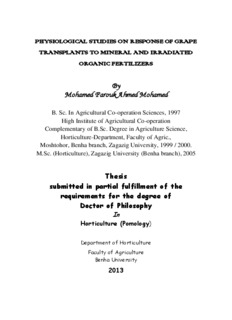
By Mohamed Farouk Ahmed Mohamed

Games, Ideas and Activities for Primary Drama (Classroom Gems)

Easy Italian Step-by-Step
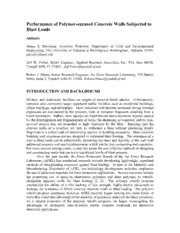
DTIC ADA442146: Performance of Polymer-Encased Concrete Walls Subjected to Blast Loads

TS 125 307 - V5.5.0 - Universal Mobile Telecommunications System (UMTS); Requirements on User Equipments (Ues) supporting a release-independent frequency band (3GPP TS 25.307 version 5.5.0 Release 5)
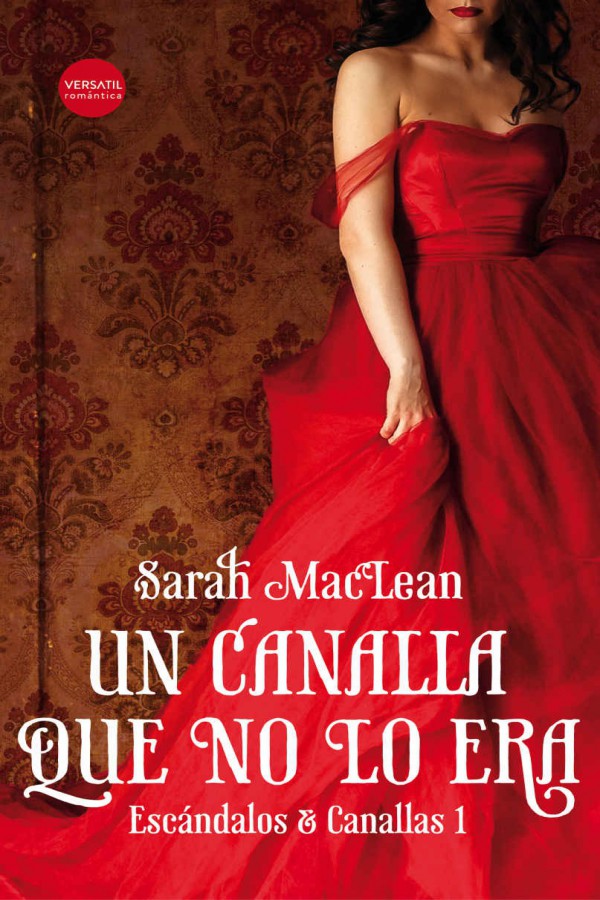
Un canalla que no lo era
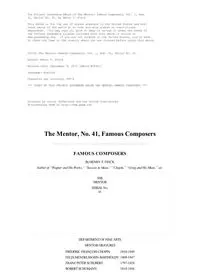
The Mentor No 41 Famous Composers by Henry T Finck

Die Freiheit der Meere und der Künftige Friedensschluß

Greek Government Gazette: Part 7, 2006 no. 733
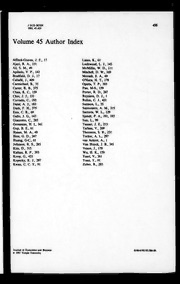
Journal of Economics and Business 1993: Vol 45 Index
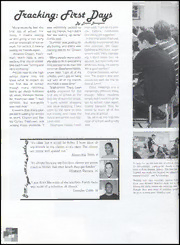
Reflector (2006)

In Queer Street

Zeitenschrift Nr. 103

Cain and Abel

